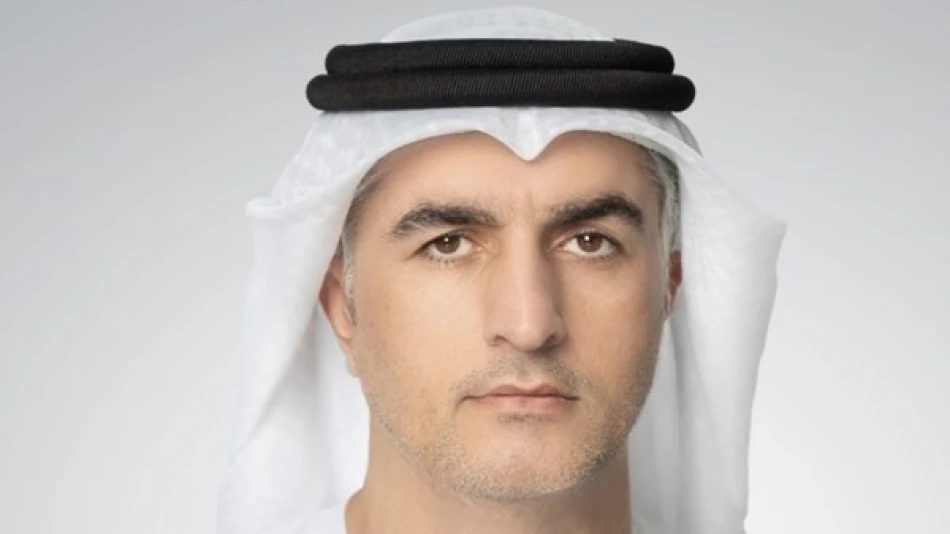
Emirati Families Vital in Nurturing National Identity, Says Educational Expert
UAE's Educational Excellence Awards Push Arabic Teaching Innovation and Family Values
The UAE's Khalifa Educational Award is doubling down on two key priorities: strengthening Emirati family roles in education and modernizing Arabic language teaching through AI and advanced technology. The initiative reflects a broader push to maintain cultural identity while embracing digital transformation in schools across the Emirates.
Family-Centered Education Takes Center Stage
At recent workshops in Ajman, the award's organizers emphasized how Emirati families serve as the foundation for national identity and educational success. This isn't just cultural rhetoric – it's a strategic response to global trends where traditional family structures often clash with modern educational demands.
The Khalifa Educational Award, part of the Zayed Humanitarian Legacy Foundation, is positioning families as active partners in education rather than passive supporters. This approach mirrors successful models in Singapore and South Korea, where family involvement correlates directly with academic achievement.
The Outstanding Emirati Family Category
The award includes a specific category recognizing exceptional Emirati families. The Khalil Sahkou family recently shared their winning experience, offering practical advice on balancing traditional values with modern educational needs. This category sends a clear message: educational excellence isn't just about schools and teachers.
Arabic Language Teaching Gets a Tech Makeover
Here's where things get interesting. The award is pushing Arabic language teachers to integrate artificial intelligence and advanced technology into their classrooms. This represents a significant shift for a language often taught through traditional methods.
Dr. Majdi bin Souf and Dr. Saif al-Din al-Fuqara led workshops specifically focused on creative Arabic teaching methods. The emphasis on innovation suggests UAE educators recognize a challenge: keeping Arabic relevant and engaging for students growing up in a digital, multilingual environment.
Why This Matters for Arabic Education
Arabic faces unique challenges in the modern world. While English dominates technology and international business, Arabic remains crucial for cultural identity and regional communication. The UAE's approach – embracing technology rather than resisting it – could serve as a model for other Arab nations struggling with similar issues.
Ten Categories, Seventeen Subcategories
The 2025-2026 cycle covers an ambitious range of educational areas:
Creative teaching now includes advanced technology and AI criteria. Institutional educational performance focuses on systemic excellence. People of determination (the UAE's term for people with disabilities) gets dedicated attention with workshops on best practices and inclusive environments.
Other categories span higher education, educational research, children's educational authoring, and innovative educational projects. The breadth suggests the UAE views educational excellence as a comprehensive ecosystem rather than isolated achievements.
Strategic Timing and Regional Context
This push comes as Gulf states compete for educational leadership. Saudi Arabia's Vision 2030 includes major education reforms. Qatar continues leveraging its World Cup investments in human development. The UAE's focus on family involvement and Arabic innovation represents its unique approach to this regional competition.
The workshops in Ajman, led by Secretary-General Hamid al-Hawti, brought together experts from across the Emirates. This geographic spread matters – it ensures rural and urban educators share the same standards and opportunities.
What This Means for Educators and Families
For teachers, the message is clear: innovation isn't optional anymore. The integration of AI and advanced technology into evaluation criteria means traditional teaching methods alone won't cut it for award recognition.
For families, the emphasis on their role creates both opportunity and pressure. Emirati families are being asked to step up as educational partners, not just supporters of their children's schooling.
The broader impact could extend beyond the UAE. If this model successfully balances cultural preservation with technological innovation, other Arab nations may adopt similar approaches. The stakes are high – and the UAE seems confident it can set the standard.
Most Viewed News

 Layla Al Mansoori
Layla Al Mansoori






